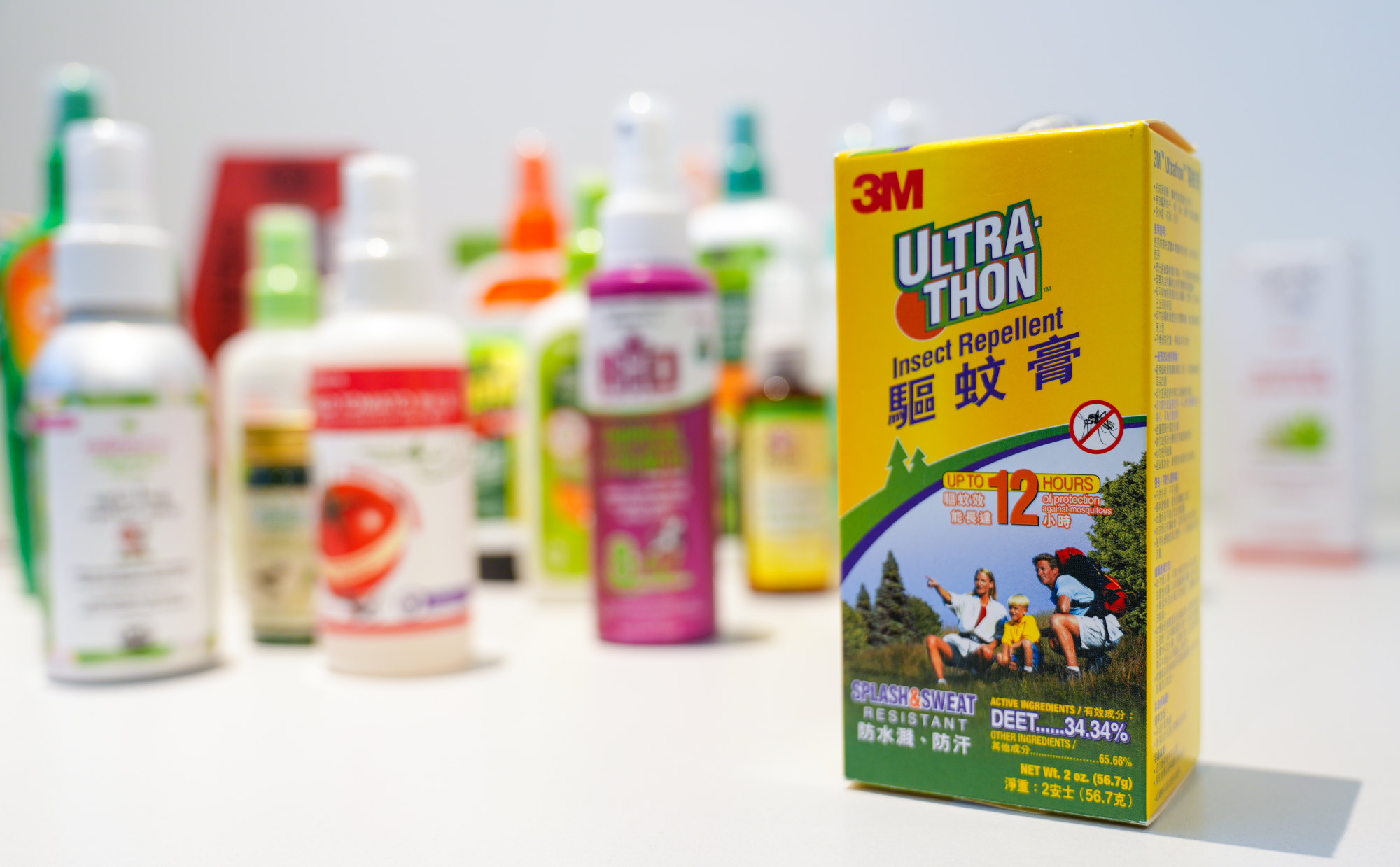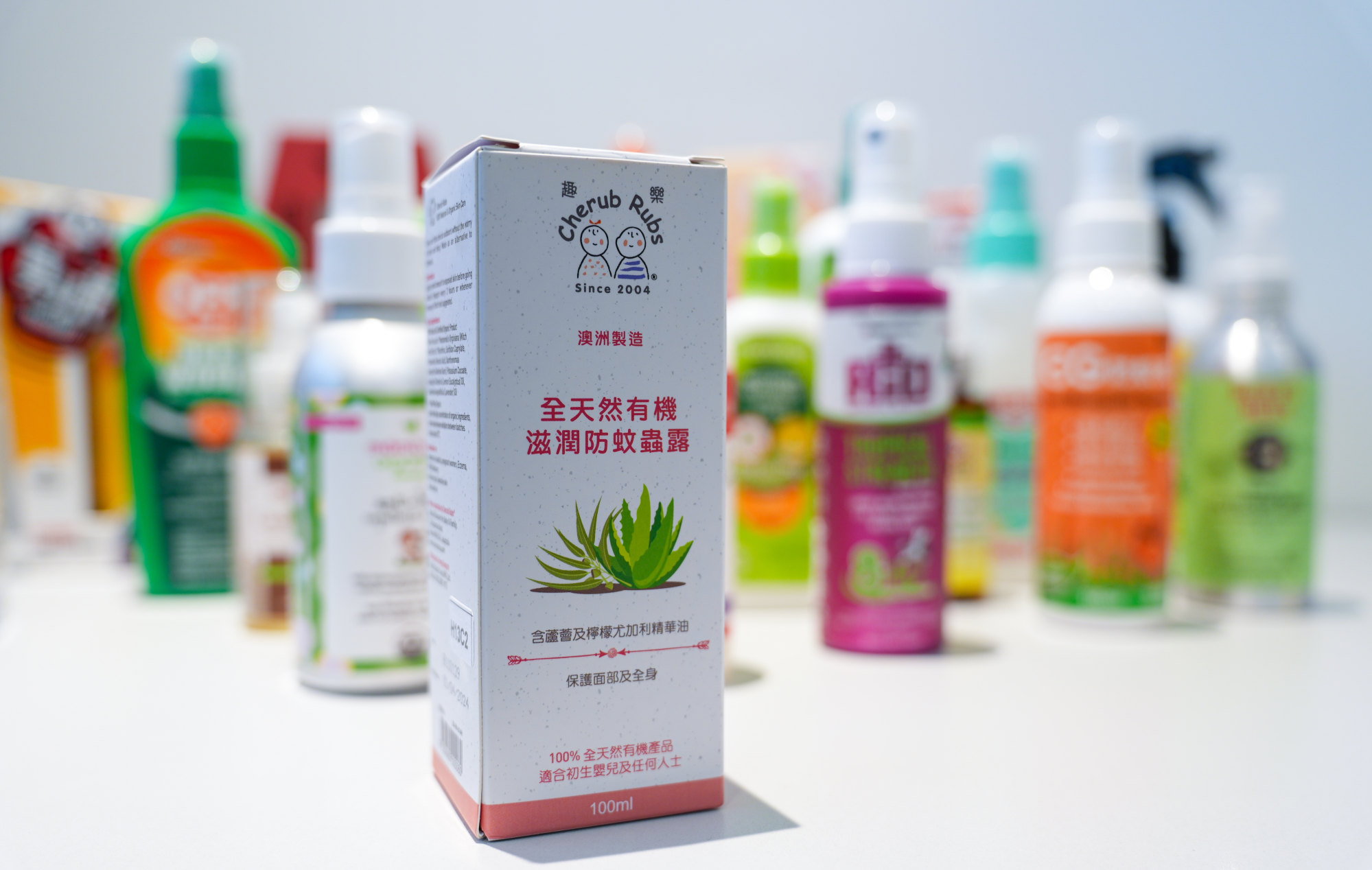
Hongkongers applying DEET-based repellents to keep mosquitoes at bay warned of potential side effects
- Consumer Council says high concentrations of DEET may cause rashes, blisters, skin and mucous membrane irritation, warning children more susceptible
- 3M Ultrathon Insect Repellent, with DEET concentration levels up to 30 per cent, found to be highly effective
Hong Kong’s consumer watchdog has called on people to be cautious while applying DEET-based mosquito repellents, despite being the most effective, as they can cause side effects, with test results also showing that at least one “natural” brand attracts the insects.
The Consumer Council said on Thursday it tested 25 repellents and found that 90 per cent of the nine DEET- or picaridin-based ones could provide 80 per cent or more protection four hours after applying.
The 3M Ultrathon Insect Repellent, with DEET concentration levels up to 30 per cent, was found to be highly effective as it kept mosquitos away from a participant’s forearm all the time during the test. Its price ranges between 20 HK cents and HK$2.80 (36 US cents) per gram or millilitre.
But the watchdog warned that a high concentration of DEET might cause rashes, blisters and skin and mucous membrane irritation, with children being more susceptible to the side effects.

It also called on people to avoid applying them on infants, saying DEET repellents with concentration levels up to 30 per cent should only be used on babies aged between two and six months if they were travelling to areas where mosquito-borne diseases, such as Zika and dengue, were endemic.
Picaridin, another substance that proved to be more effective in repelling mosquitoes, was found to have caused less skin irritation than DEET, but might still hurt users’ eyes, according to the watchdog.
The Department of Health in Western Australia does not recommend the use of picaridin-based repellents for children under one, whereas Health Canada states that it should not be used on those under six months.
The test, commissioned by the watchdog with reference to the guidelines by the World Health Organization (WHO), was conducted in Australia to inspect repellents against yellow fever mosquitoes and southern house ones, commonly found in Hong Kong and known for transmitting filariasis.
Council chief executive Gilly Wong Fung-han said the those two types of mosquitoes were chosen according to WHO guidelines, giving the test reference values.
“Hong Kong has about 70 types of mosquitoes and there are about 3,000 types in the world. It’s impossible to carry out tests on all 3,000,” she said.

The watchdog described the performance of eight models that claimed to be natural or were labelled with botanical ingredients as “satisfactory” against southern house mosquitoes but “unsatisfactory” against yellow fever ones, known for transmitting dengue fever.
Cherub Rubs Scatterbugs brand was found to have the worst performance among repellents which attracted more mosquitoes during the test.
An average of 38 southern house mosquitoes and 118 yellow fever bugs landed on arms within the first minute of a four-hour mark, compared with respective 17.8 and 104.4 insects before the application.
The Cherub Rubs Scatterbugs’s manufacturer said it was not a repellent and only served primarily as an outdoor moisturiser, but the council stressed that the test was conducted on products that carried “repelling function of mosquitoes and insects” description.
Repellents with natural ingredients contained allergens and could also mildly irritate the skin, eyes and throat, the council said, warning users to be cautious when applying especially on young children and pregnant women.
The watchdog recommended that users should apply sunscreen first and allow 15 to 30 minutes for it to be fully absorbed before applying mosquito repellent when heading out.

